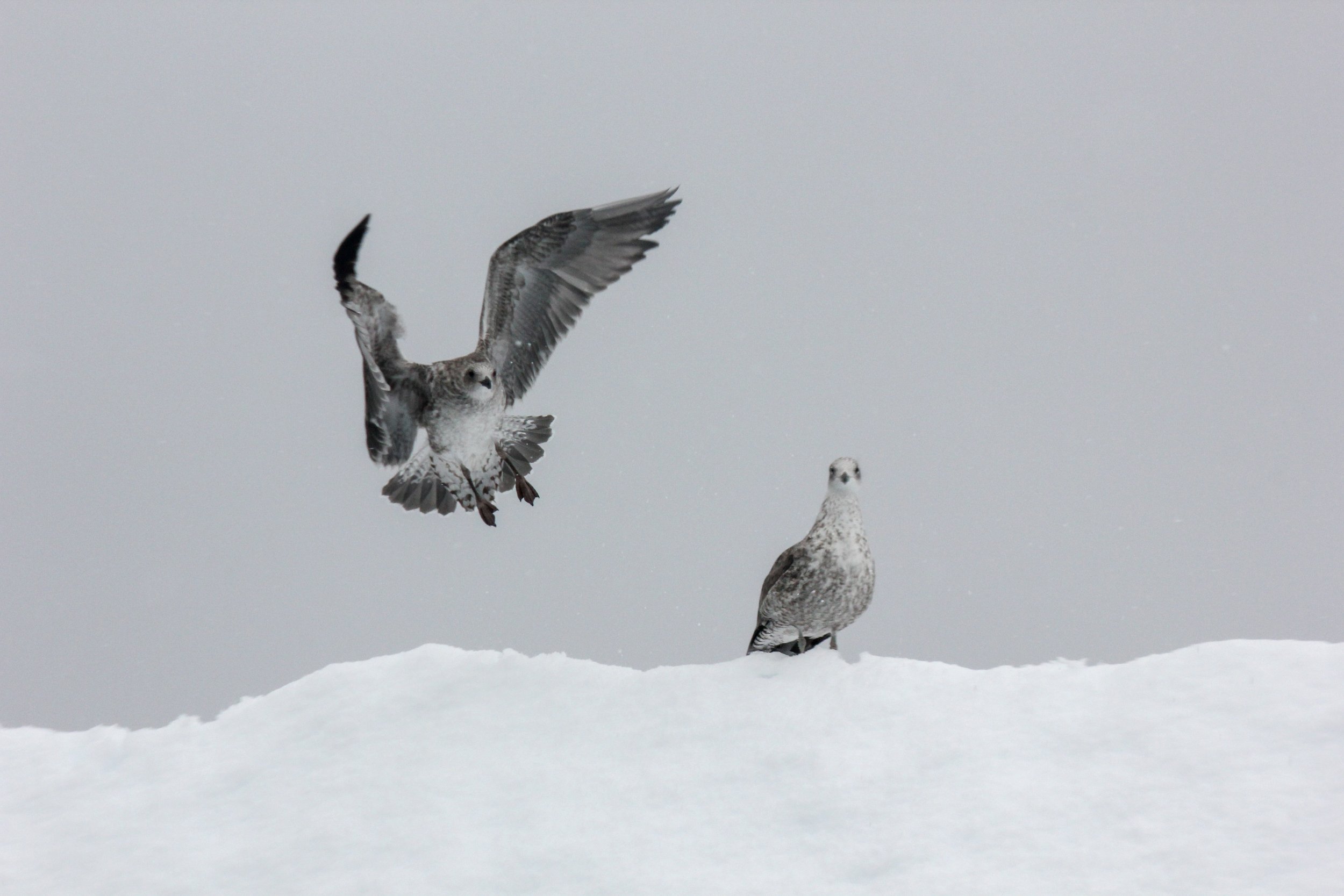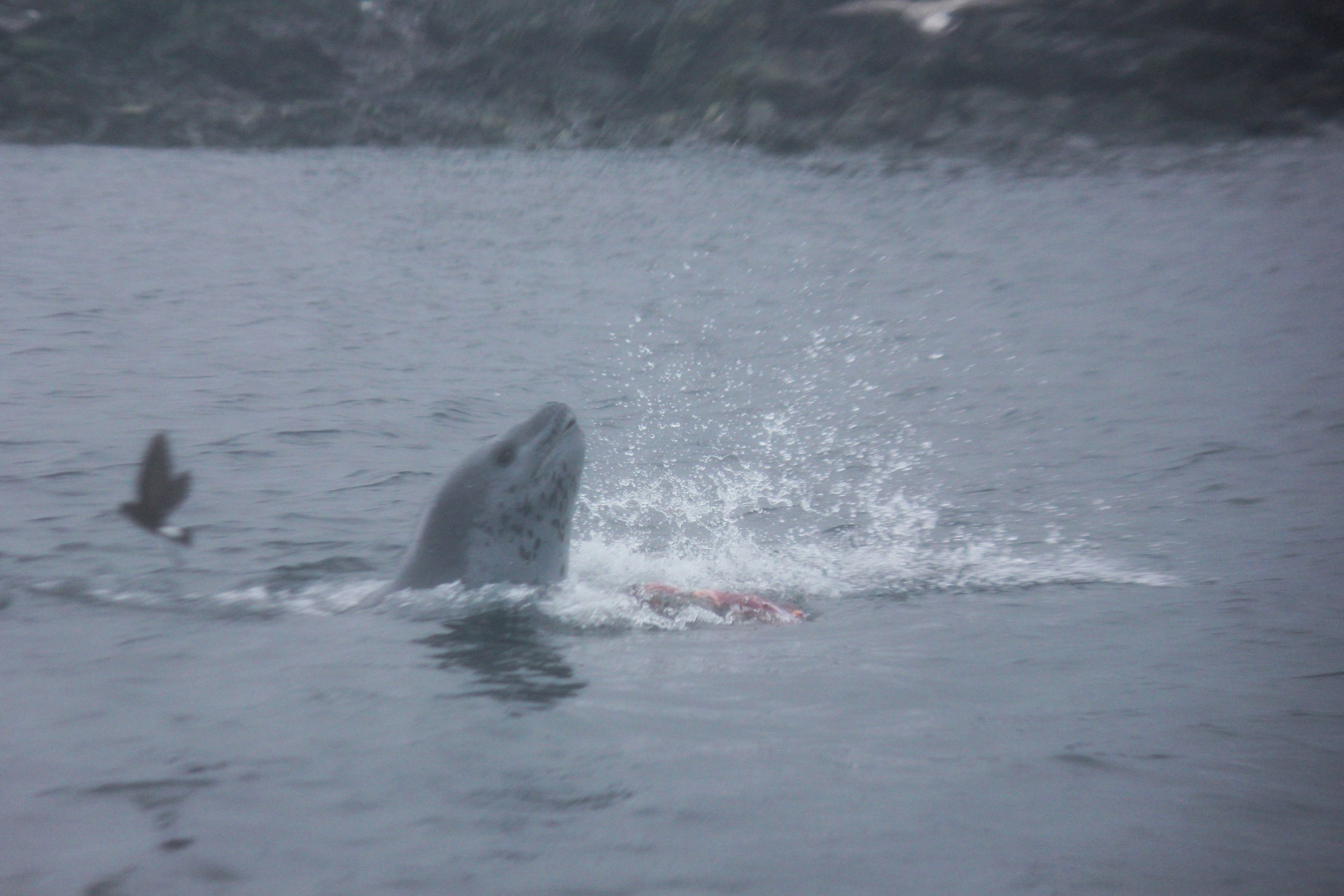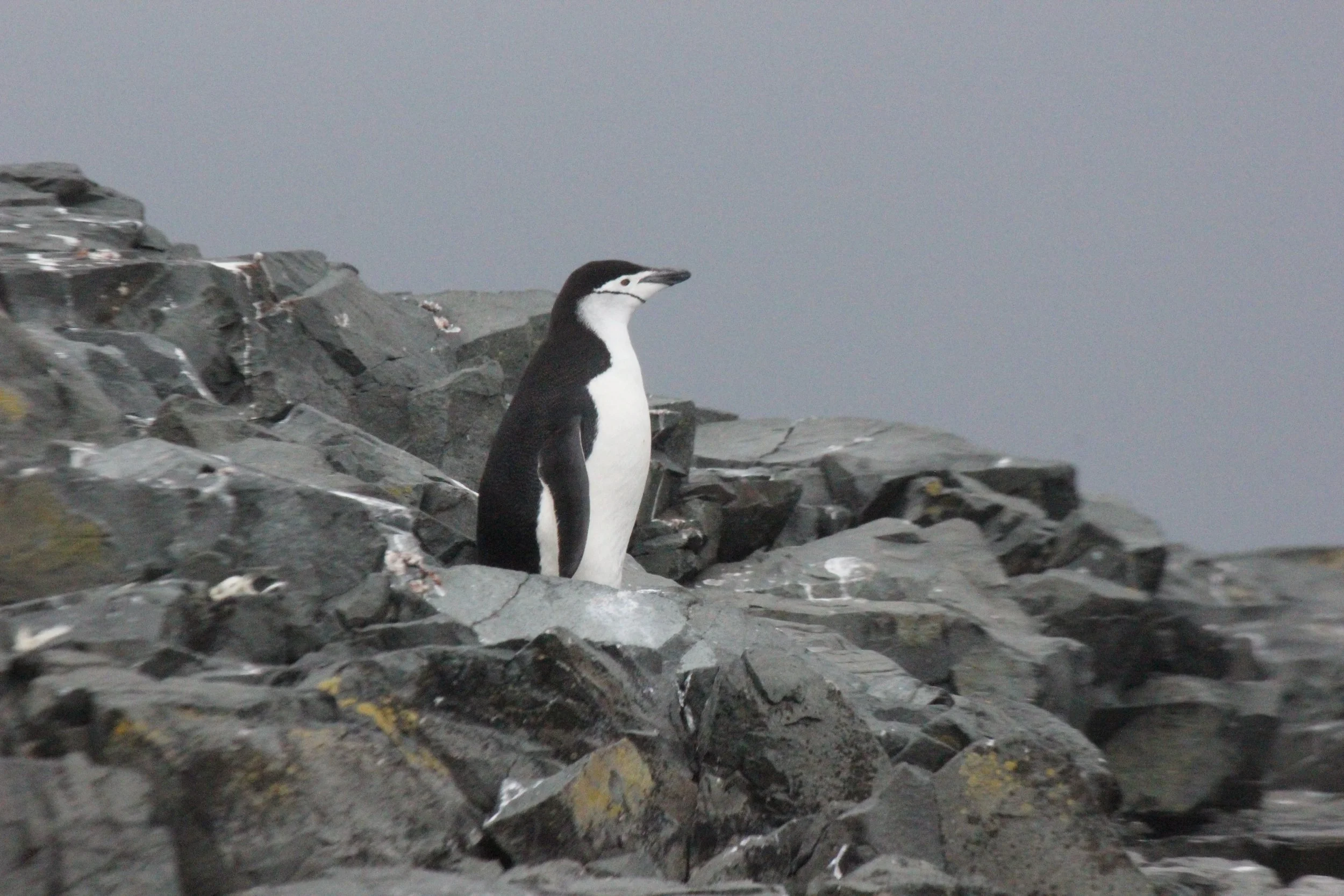Polar Blog Series Part I: The Antarctic
Chapter 3: Southern Wildlife
The Antarctic coast might appear desolate upon first glance, but there’s an entire ecosystem of life near the continent, mostly under the water. Penguins dart under the surface near our zodiac, or porpoise in and out of the water in groups, sometimes even racing the zodiac. There are several different species of penguin, and we got to see five on our trip: Gentoo, Magellanic, Chinstrap, Macaroni and King.
Beautiful birds abound in the Antarctic
The real secret of visiting Antarctica is the wildlife experiences made possible by the zodiacs. We landed on a small island, more of a rock outcropping, and watched penguins scuttle here and there. We watched a fur seal bathe in the grey light. Our guides trained us how to ward off the furseals if they became interested in us and approached: stand tall and firm and be big, holding your ground—face them and don't back up.
Fur seal basking in the breeze
We even witnessed a kill. While heading back to the ship after an hour of cruising, there were gasps by others on the zodiac. I looked back and saw the fragmented remains of a gentoo penguin launched in all directions. A leopard seal had just snatched one close to the surface. To more easily devour them, leopard seals will thrash penguins back and forth to rip them apart. Literally ripping their tissue and skin and bones apart, it's a ghastly site. I had never seen a marine kill like that, and it felt very different than the ones I saw in Africa.
The leopard seal thrashing about its caught penguin
As a privileged suburbian from California, I had to adjust to seeing nature in its most raw and deadly form when on safari. In the beginning you feel bad for the prey. But towards the end you start to feel bad for the predators—you see their continual and mounting hunger over the course of a week, and every failed hunting attempt brings them closer to the edge of death. But this was different. I had never seen something in the water, and I was completely unfamiliar with this setting. The penguins hunt the fish, and the seals hunt the penguins, and the orcas hunt the seals... it all flowed together, even if violently. We watched nature take its course.
A gentoo penguin floating nearby
And it struck me how wild all of this was, that I was at the bottom of the world watching marine animals hunt and kill each other, surrounded by scenery impossible anywhere else. That in today's time, a middle-class American could travel down to the White Continent and observe the wildness of life and nature. This is the Earth we inhabit. This is the world we are a part of. In such a faraway place it was plain to understand how removed we are from it. Humans merely study the Antarctic, because we know so little. And yet it's here. The glory of our planet is on full display for anyone who ventures down. It's an incredible experience, because it's so surreal and different, and yet ordinary for the planet in the grand scheme of things.
Chinstrap penguin making its way down the rocks
Observing the wildlife of Antarctica changed me. But it was nothing compared to the whales.






